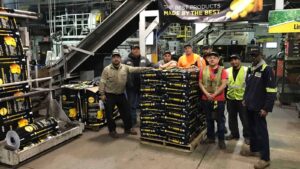Wall Street strategist Ed Yardeni has dialed back his recession forecast, lowering the probability of a U.S. downturn to 35%, down from 45% in March. This marks a shift from his earlier warnings about the impact of escalating trade tensions under President Trump’s new tariff regime.
“The Godot Recession” Returns?
Referencing his long-standing metaphor, Yardeni quipped that the anticipated downturn might once again be a case of “Waiting for Godot”—long forecasted but never arriving. Despite a recent spike in market-based recession indicators following Trump’s announcement of 145% tariffs on Chinese goods, Yardeni sees signs that both economic fundamentals and political motives may work against a near-term contraction.
“The recent April jobs report gave us more confidence in the labor market’s strength,” he said, alluding to stronger-than-expected payrolls growth that calmed recession fears. While the Index of Leading Economic Indicators (LEI) continues to suggest a slowdown, the Index of Coincident Indicators—a measure of current activity—remains at record levels.
Tariff Pause Could Be Pivotal
Markets were initially shaken by the sweeping tariff announcements, which included a 10% baseline duty on most imports. But Trump’s subsequent decision to delay implementation of key levies has helped ease market anxieties. According to Yardeni, this delay signals that “U.S.-China negotiations may resume in earnest,” possibly driven by political incentives ahead of the midterm elections.
Investors monitoring trade war-related risks and macroeconomic indicators can access real-time updates through the Economic Calendar API, which includes datasets like LEI, CPI, payrolls, and trade balances to gauge policy impact.
With resilient labor data and signs of tariff de-escalation, Yardeni suggests that the widely feared 2025 recession may remain a “no-show” — unless trade tensions reaccelerate. While risks persist, the underlying fundamentals still lean in favor of a soft landing.




